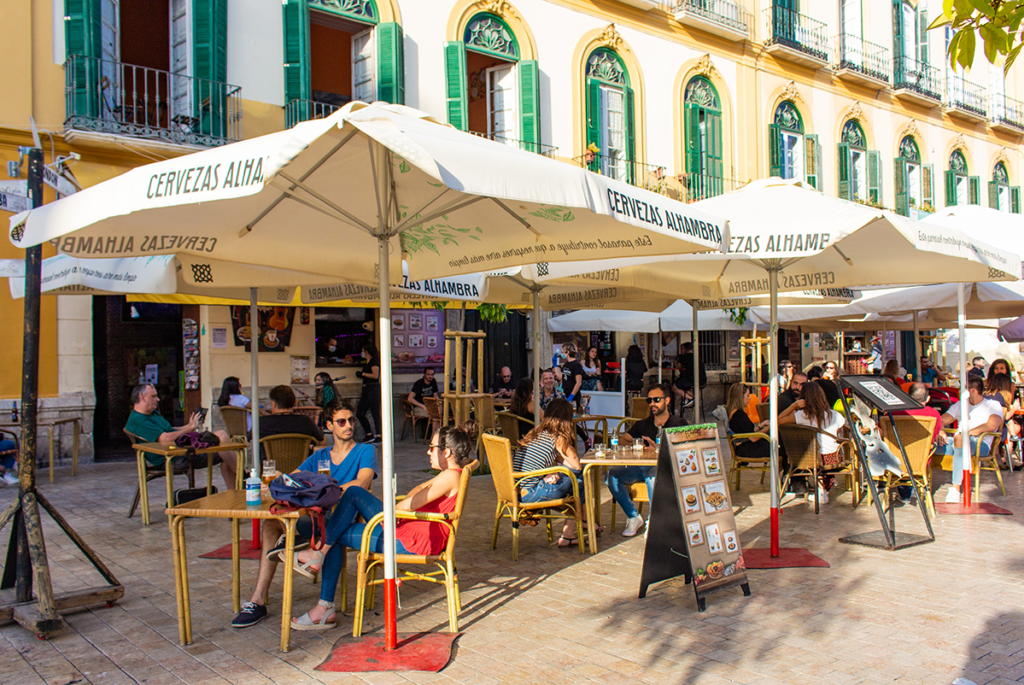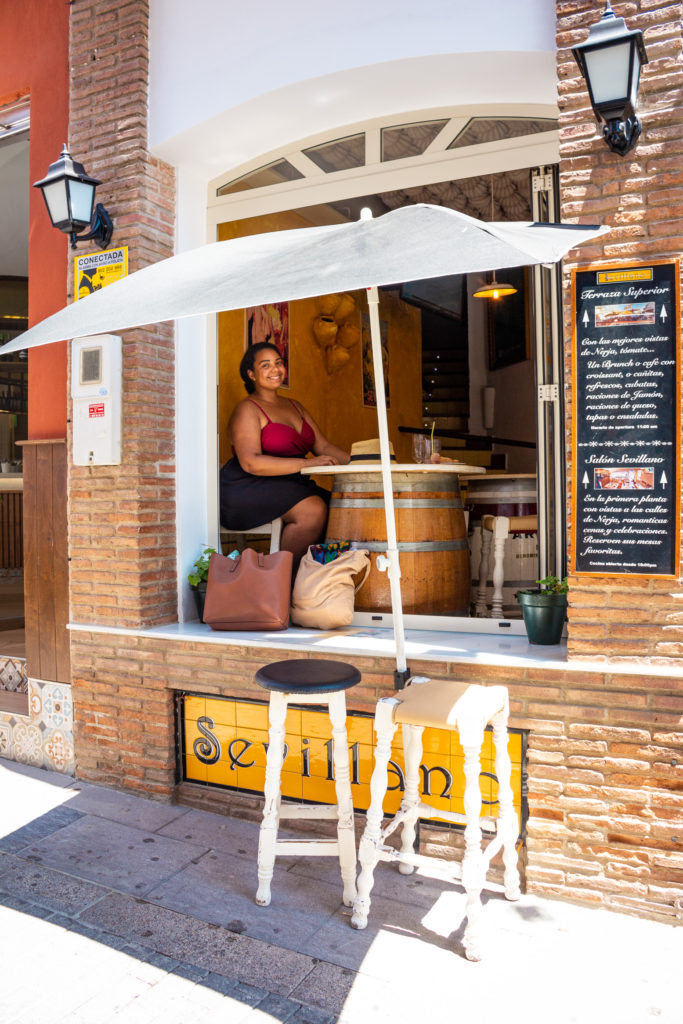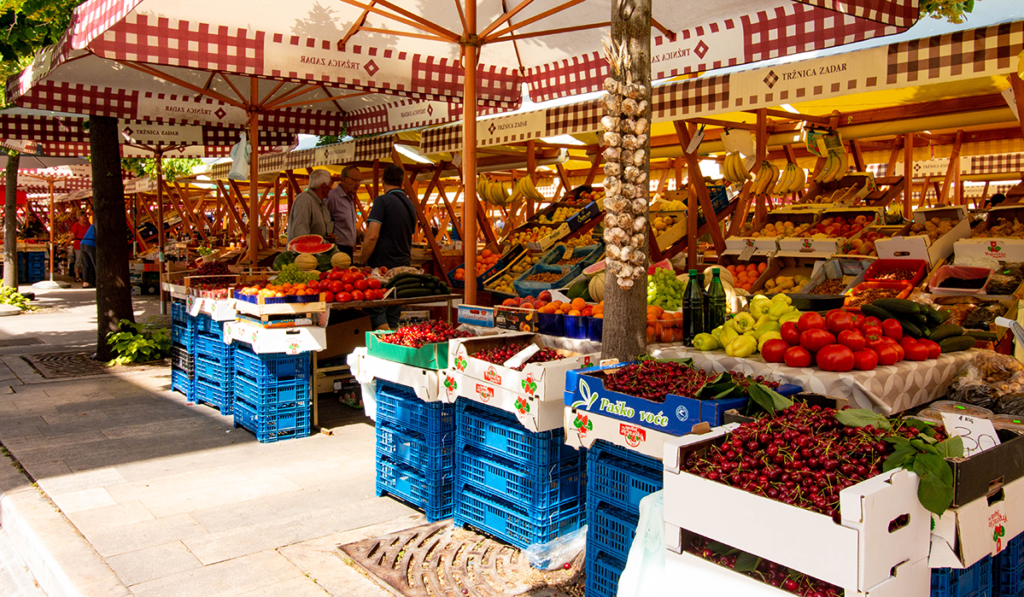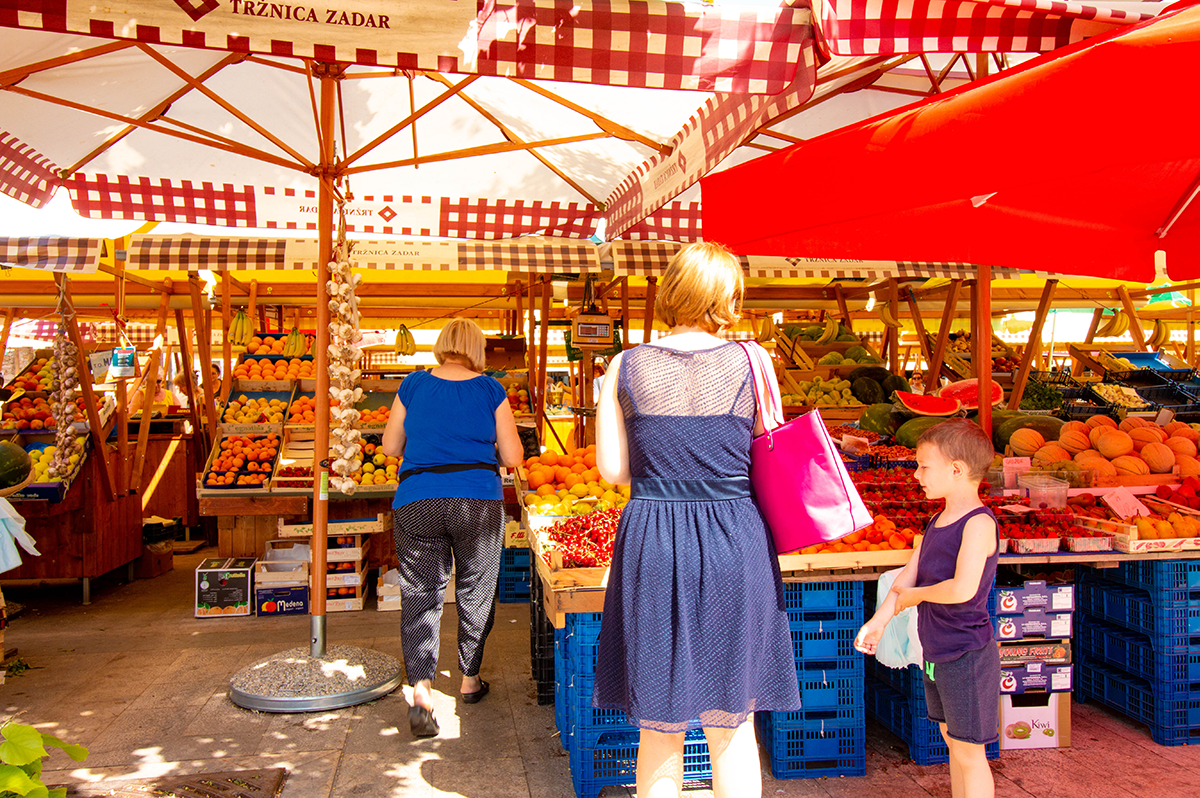Eating is one of my favorite parts of traveling! (Is anyone else with me on that one?) Trying all of those delicious local flavors is not only one of the joys of exploring new parts of the world, but also a perfect way to eat sustainably while traveling.
On the road, it can be difficult to be mindful of eco-friendly practices. Single-use plastic can become a part of eating really easily. We might buy more food than we can eat and increase our food waste.
It might not be how we behave at home, but moving constantly can cause us to leave our eco-conscious habits behind in favor of convenience. But what’s at stake when we do that?
According to WWF, food is responsible for at least 30% of greenhouse emissions globally! On top of that, 70% of fresh water taken from lakes and rivers is used in agriculture, an industry which is also the biggest cause of deforestation. Yikes!
While we produce enough food in the world to end world hunger, 45% of all fruits and vegetables are wasted.
Not to worry, y’all. We got you with these six tips that will make it simple to eat sustainably while traveling. Added plus? When we eat local foods we are putting our tourist dollars right back into the local economy!
So, let’s get started.
Dine in to eat sustainably while traveling

Sit down to eat your food or drink your coffee, y’all. Enjoy your company. Enjoy the views. People watch everyone in the plaza. You’re doing it for the environment! When we sit down and eat our food, we are cutting down on all the additional waste we’d need to take our food to go: plastic cutlery, single-use cups, straws, paper bags, the list goes on. Even if it’s recyclable, the best way to cut down on waste is not to produce it in the first place.
Another benefit is that eating slowly and being present during our meal times leads to better digestion, better hydration, easier weight loss or maintenance, and greater satisfaction with our meals.
And, this one is based on years of personal, in-depth, and very scientific research, but dining in an adorable restaurant while traveling boosts happiness! So do it for the environment and do it for your soul. You’re welcome.
Bring your own reusables for picnics or to-go meals

But, let’s say for whatever reason you really want to take your meal to go. Maybe you’re working and you want to take the coffee back to your room or you want to take some food to the beach or on a picnic. We hear you. If you foresee this being a part of your trip, bring your own reusables. Here’s a list of reusables you can pack depending on your needs:
- Water Bottles
- Reusable utensils
- Reusable Coffee Mug
- Metal Straws
- Tupperware
- Cloth Napkins
Eat local Dishes to reduce your meal's carbon footprint

Y’all this goes without saying but fresh food is bomb! Have you ever eaten strawberries picked just down the road? Or had ratatouille with tomatoes, eggplants, and peppers from a local farm? Those flavors dance in your mouth! This is probably the most satisfying way to eat sustainably while traveling. Couple it with sitting down at the restaurant and you’re on your way to food heaven.
Local dishes will automatically taste best because the ingredients are fresher. Not only will eating local dishes enhance your travel experience, but the environment will thank you. Local ingredients travel less miles and require less carbon emissions to get on your plate.
Think specifically when planning your trip. Not just the dishes that country is known for but what that region is known for. For example, in Spain if you want octopus you have to eat it in Galicia, and the best paella will be in Valencia. In my experience, eating what is best in that region is tastier and also gives you insight into the local culture.
Check out local markets to support local farmers and artisans

Speaking of eating local flavors, locate your nearest fresh food market as soon as you arrive to your destination. We love local markets for so many reasons. They are the perfect place to go to eat sustainably while traveling but are also fun cultural experiences.
Imagine mountains of juicy red tomatoes, fragrant local herbs, special jams made with local fruits, and the lively exchanges among locals. Local markets offer a perfect peek into everyday life. You can also taste locally produced food. Join in the rowdy fun and try your hand at some basic phrases in the local language like hello, thank you, how much and numbers.
It’s sure to be a fun experience. You’re also guaranteed to be putting your tourist dollars straight into the locals’ pockets. (Hooray for economic sustainability while traveling!) You may even find some jams, oils, or spices special to the region that will make great gifts for your loved ones back home.
Make sure to bring your own canvas bag for shopping and learn to say “no bag” in the local language to cut down on single-use plastics.
Only buy what you can eat to reduce food waste while traveling

A good way to cut down on both food waste and eat sustainably while traveling is to only buy what you can eat. If you are buying groceries, for example, consider only buying what you can eat over two-three days at a time. Plan out what you’d eat for each meal and only buy the ingredients you need for those dishes.
If you are going to a restaurant, order little by little or consider ordering a few dishes for the table to share to minimize how much is left behind. If you’re traveling with three people, you can try ordering two dishes and an appetizer. Then, order something else later if you’re still hungry.
When we are traveling, leftovers and unused ingredients can quickly become food waste as we continue to go from place to place.
Skip the Single-Use Plastic at Meal Times
I’ve brought this up a few times already because it is an important point to keep in mind to eat sustainably while traveling. So, it gets its own section.
Single-use plastic can get out of control when you are traveling. Even if you plan on recycling all your plastic, a company would then have to buy that plastic to turn it into something else. Currently, 91% of the world’s plastic becomes waste. Then, it takes thousands of years to decompose.
So as we mentioned before, bring your own canvas bag for shopping trips. Dine in when possible. Bring reusables for to-go meals, and learn to say “no bag, thanks” in the local language.





I always advocate the idea of carrying personal stuff like water bottles and other usable on the trip to avoid wastage.
Nice tips you have given here.
Yes, it is so important to do what we can to have a positive impact. Thanks very much, hope they were helpful!